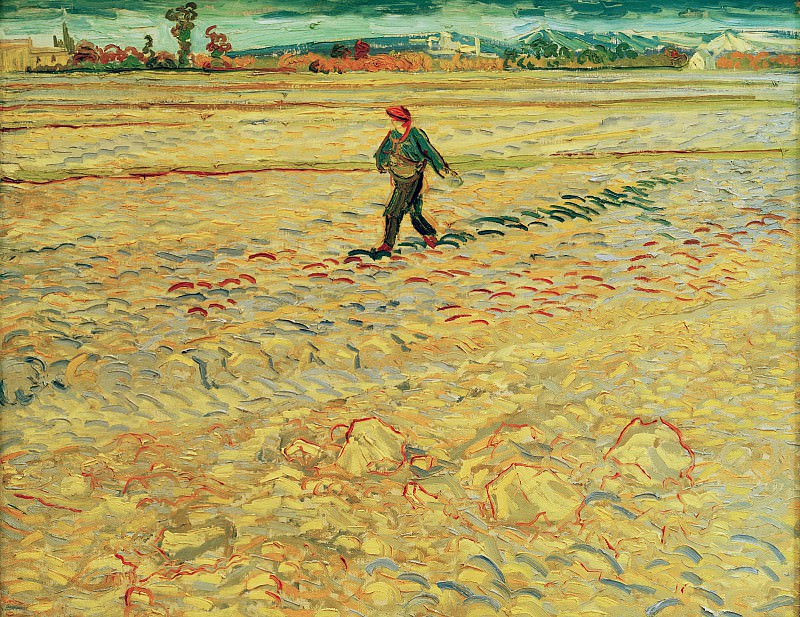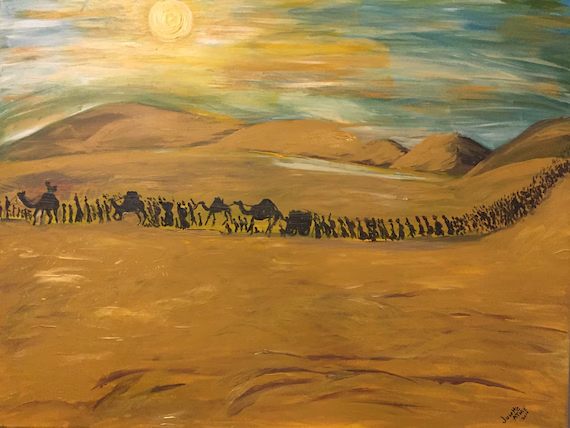The Sower in Galilee
One day, when Jesus was talking to the people on the shore of Lake Galilee, so many crowded around to hear him, he pushed a boat out onto the water and sat down in it.
The people settled down on the shore to listen. Jesus told them this story.
'There was a farmer who went out to sow his field with com. As he walked along, he scattered seeds over the ground, but some of them fell on the stony path and were soon eaten up by the birds.
This is like people who hear the word of God, but don't take in its message. Satan will soon make them forget what they have heard.
'Some of the seeds fell where the soil was thin and stony. The corn grew too quickly because it didn't have good roots: it was scorched by the sun, dried up and died.
This is like the people who gladly accept the word of God, but don't think about it. When they get into trouble or difficulties, they soon give up their faith.
'Some of the seeds dropped among thistles and weeds which grew up around them and choked them. This is like the people who are choked by their worries, love of money or love of pleasure and forget God's word.
'Some of the seeds fell on good, rich soil. The corn grew high and ripened into a fine harvest. This is like the people who listen to and understand God's message.
The way they live their lives shows that they love God and obey Him. They do much good and will be well rewarded.











Comments
Post a Comment